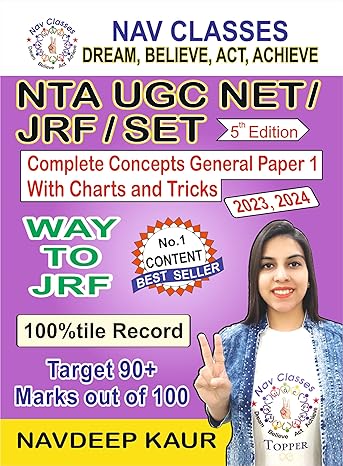1.How many members can be nominated to Lok Sabha by President ?
[A] 0
[B] 2
[C] 3
[D] 4
SHOW ANSWER
Explanation: Prior to Constitution (104th) Amendment Act, 2019, article 331 provided for representation of the Anglo-Indian Community in Lok Sabha; and empowered President to nominate for 2 seats in Lok Sabha on the advice of Government of India. This provision is no more there after 104th Constitutional Amendment Act, 2019. ©navclasses
2.Which among the following parts of constitution of India, includes the concept of welfare states?
[A] Preamble
[B] Fundamental rights
[C] Directive principles
[D] Fourth Schedule
SHOW ANSWER
Explanation: Directive Principles of State Policy contained in Part IV (Arts. 36 to. 51) of the Constitution of India aim to establish social and economic democracy / justice through a welfare state. ©navclasses
3.The makers of Constitution of India chose the scheme of federation of India, as prevalent in which among the following countries?
[A] United states
[B] United kingdom
[C] Australia
[D] Canada
SHOW ANSWER
Explanation: The makers of Constitution of India chose the scheme of federation of India, similar to UK model. Thus, the parliamentary system of India is largely based on the British parliamentary system. ©navclasses
4.The language and ideals of the Preamble of Constitution of India is influenced / borrowed from which of the following constitution(s)?
1. USA
2. France
3. Australia
Select the correct option from the codes given below:
[A] Only 1 & 2
[B] Only 2 & 3
[C] Only 1 & 3
[D] 1, 2 & 3
SHOW ANSWER
Explanation: The term and idea of the Preamble was borrowed from Constitution of United States of America. American Constitution was the first to begin with a Preamble. However, the language of the Preamble is borrowed from Constitution of Australia. At the same time, the ideals of Liberty, Equality and Fraternity come from French Constitution. ©navclasses
5.“Riksdag” is the name of parliament of which of the following?
[A] Iran
[B] Norway
[C] Sweden
[D] Kazakhstan
SHOW ANSWER
Explanation: The Riksdag is the national legislature and the supreme decision-making body of the government of Sweden. ©navclasses
6.What can be the maximum strength of Rajya Sabha?
[A] 245
[B] 250
[C] 255
[D] 260
SHOW ANSWER
Explanation: Article 80 of the Constitution lays down the maximum strength of Rajya Sabha as 250, out of which 12 members are nominated by the President and 238 are representatives of the States and of the two Union Territories. The present strength of Rajya Sabha, however, is 245, out of which 233 are representatives of the States and Union territories of Delhi and Puducherry and 12 are nominated by the President. ©navclasses
7.Pyithu Hluttaw is the lower house of the parliament of which among the following countries?
[A] Myanmar
[B] Thailand
[C] Cambodia
[D] Vietnam
SHOW ANSWER
Explanation: The House of Representatives or Pyithu Hluttaw is the lower house of the Pyidaungsu Hluttaw, the bicameral legislature of Myanmar (Burma). ©navclasses
8.The “Bill of Rights” and “Judicial Review” are features of which of the following countries constitution?
[A] USA
[B] UK
[C] Germany
[D] Australia
SHOW ANSWER
Explanation: The “Bill of rights” and “Judicial Review” are features of constitution of United States. ©navclasses
9.Which among the following committees of Lok Sabha is assisted by Comptroller & Auditor General of India?
[A] Estimates committee
[B] Public Accounts Committee
[C] Joint Committee of salary and allowances
[D] Joint committee of Offices of Profit
SHOW ANSWER
Explanation: Public Accounts Committee examines the annual audit reports of the Comptroller and Auditor General of India (CAG), which are laid before the Parliament by the President. ©navclasses
10.Which of the following part of Indian Constitution resembles the standard-setting Charter of the United Nations and the Universal Declaration of Human Rights of 1948?
[A] Part II
[B] Part III
[C] Part IV
[D] Part V
SHOW ANSWER
Explanation: Universal Declaration of Human Rights was on the final stage of drafting at the United Nations when India’s constitution was adopted. India is a signatory to the Universal Declaration of Human Rights. Thus, Part III of the constitution is partly inspired by UDHR also. ©navclasses







One Response
6/10